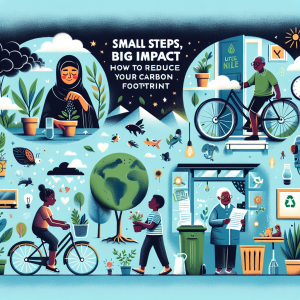Essential Tools and Equipment
Cooking off-grid requires a different set of tools than a traditional kitchen. Cast iron cookware is invaluable due to its durability and versatility. It performs superbly over open flames and can also be used on camp stoves. A good set of knives is indispensable, and opting for stainless steel ensures longevity. A manual coffee grinder and French press can replace electric coffee makers, allowing for fresh brews anywhere. A hand-crank blender offers a surprising amount of functionality, from making smoothies to mixing dough, without the need for electricity. Additionally, having a portable solar oven can be a game-changer; it utilizes solar energy to bake, slow-cook, and dehydrate foods without additional fuel.
Fueling the Fire: Alternative Cooking Methods
When cooking off-grid, traditional stoves and ovens powered by electricity or natural gas are not options. Instead, focus shifts to methods that use readily available resources. Wood-burning stoves, for instance, offer a robust cooking option that also provides heat. Open fires are another popular choice; setting up a safe fire pit can provide a source for grilling and boiling. Rocket stoves, which are highly efficient wood-burning stoves, can reduce wood consumption significantly.
For those who want something more versatile, a camping stove, fueled by propane or butane, serves as a portable and easy-to-use option. Charcoal grills, while slightly bulkier, are excellent for indirect cooking. When sunlight is abundant, a solar cooker proves invaluable, utilizing reflective materials to concentrate sunlight and cook food at surprisingly high temperatures.
Ingredient Management: Sourcing and Storing Staples
Off-grid living often means limited access to fresh groceries, making ingredient management crucial. Stockpile shelf-stable staples like rice, beans, and pasta, which have long shelf lives and offer nutritional density. Canned vegetables and meats are invaluable in supplementing meals with nutrients and protein without worrying about spoilage.
A reliance on preserved foods is often necessary; learn skills like drying, pickling, and fermenting. Dehydrating fruits and vegetables retains their nutritional value and prevents spoilage. For protein, jerky and smoked meats last considerably longer than fresh counterparts when stored properly.
Proper storage is critical. Airtight containers prevent pests and moisture from damaging dry goods. Root cellars, coolers, or even buried caches can keep perishables at consistent temperatures. Understanding the climate and environment will determine the best way to preserve ingredients.
Creative Cooking: Making the Most of Ingredients
Dining off-grid is a test of creativity and adaptability. With limited resources, maximizing flavor and variety requires some ingenuity. One-pot meals like stews and chilis are highly efficient, utilizing various ingredients harmoniously while simplifying cleanup. Soups can be stretched over multiple meals by just adding grains or beans.
For breakfast, oatmeal with dried fruits and nuts offers a filling, nutritious start to the day. When eggs are available, they provide versatile meal options, from scrambles to quiches using available vegetables and meats. Grilling or roasting vegetables over an open fire can radically enhance their natural flavors, using simple seasonings like salt, pepper, and herbs.
Baking bread in a Dutch oven is a rewarding endeavor, bringing comforting aromas and versatility. Experiment with spice blends; these can transform simple ingredients into dishes reminiscent of global cuisines such as Indian curries or Italian pastas. Utilize liquid smoke or smoked paprika to mimic the flavors typically achieved through smoking or grilling.
Overcoming Challenges: Water, Waste, and Safety
Living off-grid presents unique challenges, particularly concerning water, waste, and safety in cooking. water is essential not only for hydration but also for cooking and cleaning. Collect rainwater or identify local water sources, employing filtration systems to ensure safety. When water is scarce, plan meals that require minimal liquid and avoid excess use of dishes.
Waste management is another critical concern. Compostable waste should be utilized for gardening where applicable, while minimizing non-biodegradable waste is crucial. Opt for reusable containers and utensils whenever possible. This reduces waste and supports a more sustainable lifestyle.
Safety can’t be overlooked, especially when cooking with open flames or unfamiliar equipment. Fire safety protocols are essential: keep a fire extinguisher handy and clear the area of flammable materials. Regularly inspect propane or butane equipment for leaks and maintain adequate ventilation.
Energy Conservation: Maximizing Efficiency
Efficiency goes beyond cooking methods and ingredient management to include energy conservation. Solar panels can power small devices and lighting, ensuring that any stored fuel is used sparingly. Utilizing daylight cooking, where meals are prepared during the day when solar power is available, optimizes energy use.
Maintaining a detailed inventory of supplies and regular planning minimizes unnecessary resource depletion. By cooking efficiently and understanding your power sources thoroughly, unexpected shortages can be mitigated.
Cooking off-grid immerses the cook in a world where adapting is key, whether it’s crafting a delicious meal from limited ingredients or innovatively powering a makeshift kitchen. The challenge ultimately enriches the culinary experience, providing empowerment that extends beyond the kitchen. The key to success does not solely lie in resources at hand but the creativity and adaptability in their use.



